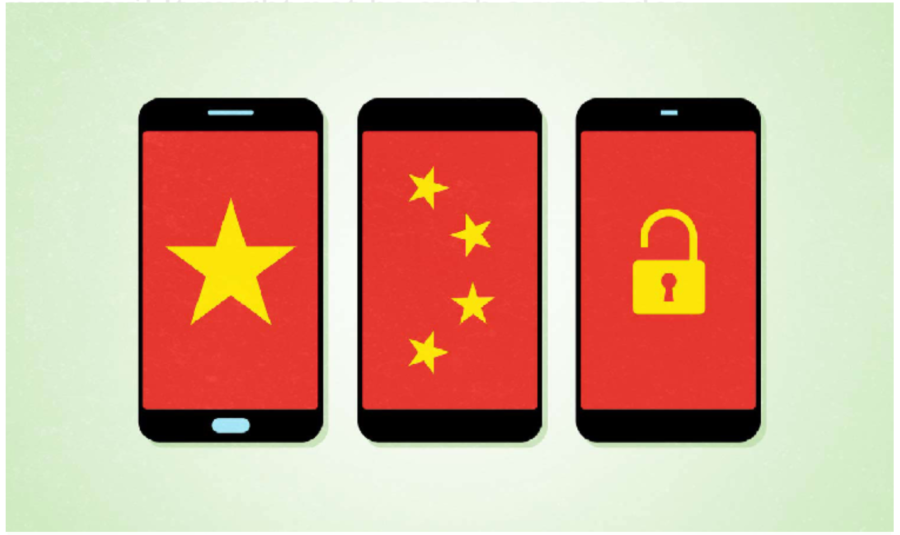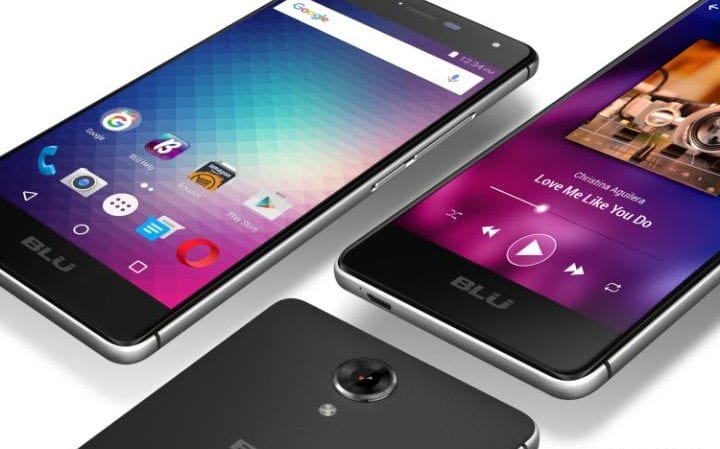Cheap smartphones as a threat to user security. 
Can you trust the security of private information to cheap Android smartphones of a little-known Chinese brand? Such an act cannot be called wise.
Most budget Android – smartphones are characterized by problems with security and privacy protection. Russian anti-virus software developer Dr. Web released a report at the end of July, which talked about the ransomware built into the firmware of the Leagoo and Nomu brands. Last week Amazon suspended sales of Blu smartphones after revealing the presence of pre-installed adware in the firmware. By Friday, the devices were again available for order.

The idea is this: it is better to think twice before buying a smartphone from an unknown manufacturer. Initially, you should be on your guard if the cost of a smartphone unattached to the operator is less than $ 100. If a smartphone is inexpensive and does not 'force' you to watch ads, then you can only guess what else the company is making money on. “Buying cheap Android – the smartphone automatically turns the owner into a participant in dangerous 'Russian roulette', in which the security and protection of personal information is at stake,” says Graham Cluley, a security threat researcher and blogger. “If you sell cheap at this stage, the risk of losing much more in the long run increases.”
Own research
This does not mean that cheap smartphones are a danger as a class; the approach to buying a budget device is akin to buying a used car. “You’ll spend two years with these devices, maybe more,” says Ramon Llamas, head of wearable electronics and mobile phone research at IDC, a market research company. “Study the history of the company regarding user privacy and decide if you can put up with this state of affairs.”
In discussions of cases of attacks on users through the mentioned category of smartphones, the emphasis is often placed on the Chinese origin of the devices, which is slightly unfair. 90% of smartphones are manufactured in China, including devices designed and sold Apple, Google and Samsung. A positive reputation is also typical for some Chinese manufacturers, such as Xiaomi, OnePlus and Huawei, although Xiaomi and managed to light up in the case of preinstallation of malicious software.
Avi Greenarth, research director at GlobalData: “The problem is not limited to low-cost phones. Rather, it’s not the price range, but the original target market. ” But what is known about Leagoo? Doogee? Oukitel? Homtom? Most people don't know about them. These are some of the dozens of manufacturers whose Android – smartphones are sold online and cost less than a hundred dollars.

I would not trust any of these companies. As far as I know, they may send my personal data to servers in China or have big security problems, as a result of which a hacker can easily hack into a phone or install malware remotely.
“The Chinese approach to privacy is at odds with the Western one,” Greenarth said. “The US market sells inexpensive phones under the brands Motorola and Alcatel that are not mentioned in any scandals. and the head offices of the companies Lenovo and TCL are in China. '
The hype BLU
You've probably heard of BLU, an American company based in Miami that sells pretty phones in the $ 50 to $ 170 price range. Most of these phones are rebranded versions of phones Gionee, one of the major Chinese manufacturers. BLU contested the suspension Amazon of device sales that occurred last week and was prompted by suspicions of spyware in the firmware. The controversial point is this: whether to consider the collection and transmission of information about the location of the device, phone number, serial number, SIM card identification number or other identification data as spy activities.
Единственным отличием становится факт отправки информации не в AT&T или T-Mobile, а на китайские серверы. Until December last year, smartphones BLU sent important personal information to these servers – text messages, contact lists and calls. The problem seems to have been resolved.
Whom to believe?
Despite the assurances BLU and other companies in their reliability, you need to treat an unknown brand with a grain of salt, even if you are attracted by a low price.
Cluley: 'There were a lot of cheap and unknown brands on the Internet that covered the installation of malicious software. Maybe the manufacturer is not to blame: the violation could have occurred at one of the stages of production. But the consumer doesn't care. '
If you don't want to worry about the safety of your phone or private information, then you should stick to the more well-known brands. Amazon sells dozens of phones in the $ 150 price range made by Samsung, Motorola, HTC, Alcatel and LG . Yes, technically, these devices may be inferior to smartphones of unknown Chinese brands, but at least there is an understanding of what you are getting.
“We live by constantly using our phone. Better to overpay a little and be sure that the device you are using is safe, '' says Kluley.
Original material by Paul Wagensale
Not all users can afford flagship smartphones, and even the middle segment. And in all honesty – not everyone needs them. But in the pursuit of maximum performance within the available amount, users often forget about security, apparently considering the Chinese manufacturers Robin Hoods of the technological world, who seek to empower the sufferers with maximum opportunities in an attempt to snatch their 'piece' from the big players. But this is a utopia.
All this is to talk about a certain caution and literacy when it comes to interacting with devices. China is not the same as China, the time has already passed when one could safely equate them. It may seem wild to some, but such are the realities of the modern world of smartphones and gadgets in general.
